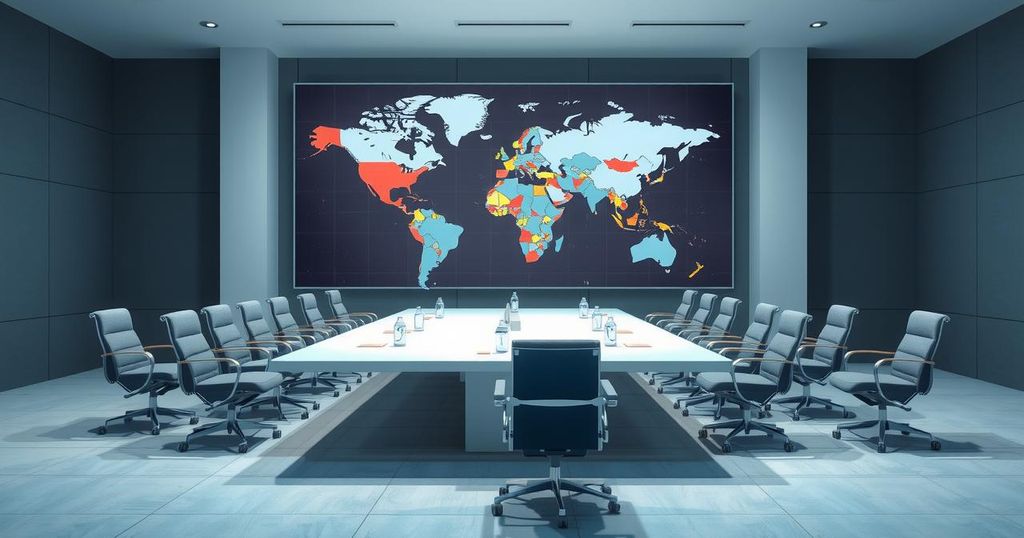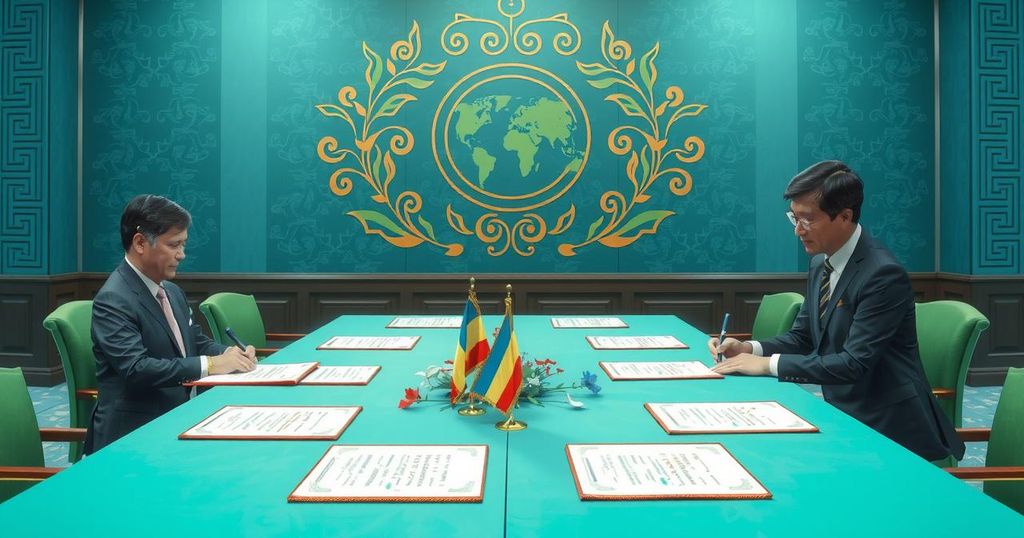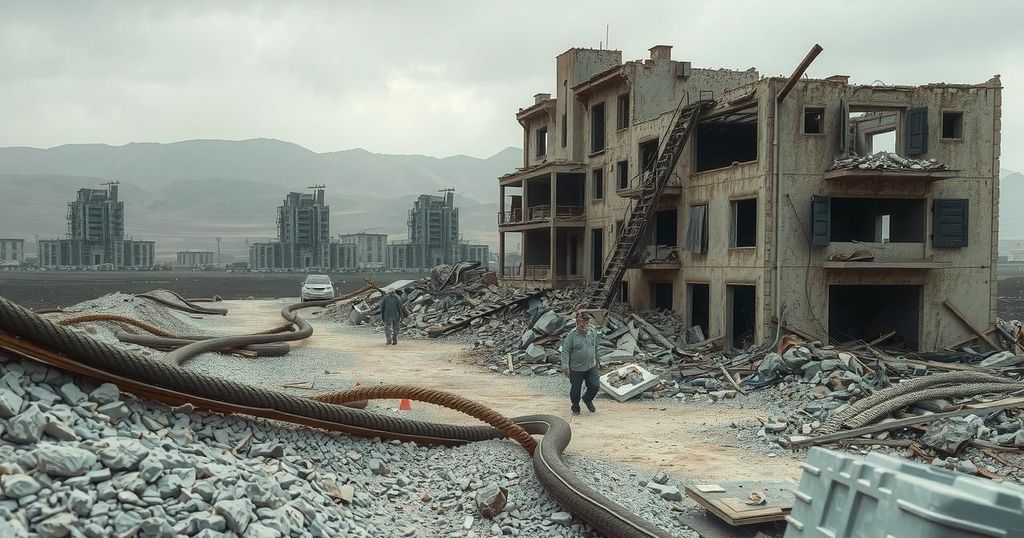U.S. Acknowledges Reports of Iranian Shipment of Missile Propellant from China
The Trump administration acknowledged reports of Iran potentially acquiring missile propellant from China but refrained from confirming the claims. The sanctioned Iranian vessels, Golbon and Jairan, are reportedly involved in this scheme. Recent ship movements reveal potential illicit activities regarding cargo transfers, highlighting ongoing concerns over Iran’s missile capabilities and international sanctions.
The Trump administration acknowledged reports suggesting that Iran is attempting to ship missile propellant chemicals from China, yet refrained from confirming the accuracy of these claims. A State Department spokesperson noted on January 30 that while the U.S. is aware of such reports, it does not comment on intelligence issues. Reports from the Financial Times and The Wall Street Journal stated that Iranian-operated vessels were being loaded with 1,000 metric tons of sodium perchlorate in China.
The gathered information indicated that the vessels, Golbon and Jairan, could potentially carry enough sodium perchlorate to convert into a significant amount of ammonium perchlorate, a critical component for solid fuel missile propellant. The U.S. Treasury Department has sanctioned these ships, prohibiting them from participating in any U.S.-related commerce.
The State Department reiterated its commitment to preventing the proliferation of materials that could enhance Iran’s missile capabilities while maintaining sanctions against the nation. Meanwhile, an Iranian U.N. spokesperson did not respond to inquiries about the ships, leaving the details of the alleged shipment unconfirmed.
Iran has cultivated a long-standing partnership with China since a 2021 cooperation agreement aimed at enhancing military collaboration. However, the specifics of any arms sales from China to Iran remain unverified. In response to the media reports, a Chinese Foreign Ministry representative expressed ignorance of any activities involving the Iranian vessels and asserted that China adheres to its export controls.
Ammonium perchlorate, produced from sodium perchlorate, is subject to global export controls due to its association with missile technology. Neither Iran nor China participates in the Missile Technology Control Regime, a collective aimed at limiting missile proliferation. Following an attack that significantly damaged Iran’s missile manufacturing in October, there is a pressing need for supplementary propellant supplies, as noted by defense researcher Behnam Ben Taleblu.
Recent ship tracking analysis revealed movements of the Golbon and Jairan regarding the potential shipment to Iran. Notably, the Golbon showed signs of cargo loading during its transit, suggesting illicit activities to avoid detection. The vessel’s intended destination shifted, raising questions about its alignment with reported delivery plans of sodium perchlorate.
Although the Financial Times suggested the Golbon would make a direct delivery to Iran, recent ship data indicated changes in its course and stops at different ports in China before heading towards Iran’s Bandar Abbas port. Conversely, the Jairan remained at its docking location without significant cargo loading, prompting skepticism about its involvement in the shipment scheme. There have been no reported sanctions against Chinese suppliers of sodium perchlorate, despite historical sanctions against Iranian defense entities acquiring missile materials.
Recent reports indicate that Iran is allegedly attempting to secure missile propellant precursors from China. This comes amidst growing tensions and strict sanctions aimed at curbing Iran’s missile capabilities. Understanding the geopolitical dynamics between Iran and China within the context of U.S. sanctions on both nations provides necessary context to interpreting these developments. The partnership solidified in 2021 further complicates international relations and arms control efforts.
In summary, the U.S. is monitoring potential Iranian efforts to acquire missile propellant chemicals from China but has not confirmed these reports. The apparent movements of Iranian vessels involved in this scheme raise concerns about the enforcement of international sanctions and missile proliferation. As the situation develops, the implications of Iran’s military manufacturing capabilities and collaboration with China remain critical areas of scrutiny.
Original Source: www.voanews.com








Post Comment